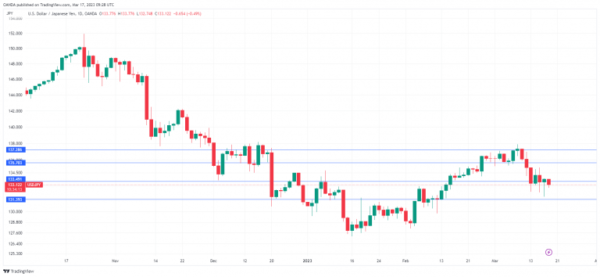The Japanese yen is in positive territory on Friday, trading at 133.02, up 0.56%. USD/JPY touched a one-month low on Thursday, falling as low as 131.72.
How will BoJ react to the new wage agreement?
The Kazuo Ueda era has begun at the Bank of Japan. Former Governor Kuroda has departed after 10 years at the helm and the markets are on alert as Ueda takes over. In his confirmation hearings, Ueda toed the line, stating that the current policy was appropriate. The markets aren’t so sure, as the Bank’s yield control curve (YCC) policy has distorted the bond markets and is in need of change. Kuroda didn’t make any moves at his final meeting earlier this month, which may have put more pressure on Ueda to tweak YCC, which would likely have a significant impact on the markets and the yen.
Meanwhile, the annual Japanese rite of collective wage talks has ended, with employees getting the last laugh. Major Japanese companies, including automakers, agreed to fork over the largest pay increases since 1997, with an average wage increase of around 3%. Japan’s inflation rate of around 4% is much lower than in other major economies but is at a 42-year high and this put pressure on employers to provide hefty wage hikes.
How will the BoJ react to the wage agreement? Former Governor Kuroda insisted that current inflation was due to external factors such as high commodity prices and said that the BoJ would not consider tightening unless there was evidence that inflation was sustainable and being driven by wage growth. The new wage agreement could provide the BoJ with an excuse to tighten policy and even raise interest rates. Governor Ueda’s first meeting on April 28th promises to be interesting.
USD/JPY Technical
- 136.06 is under pressure in support. 13502 is next
- 136.86 and 1.37.90 are the next resistance lines

